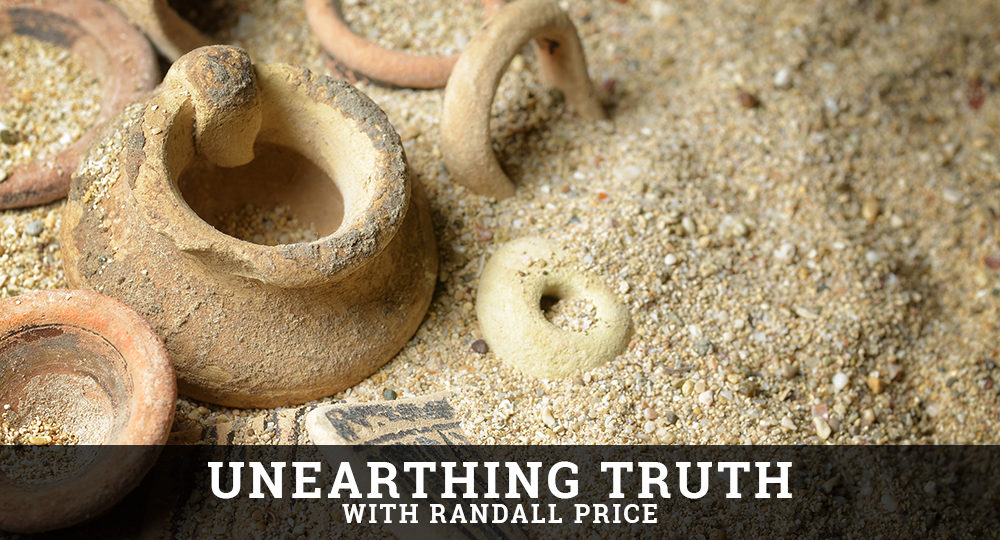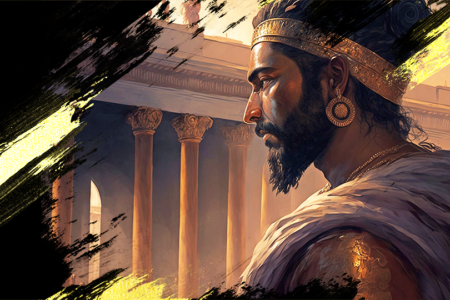Archaeology and Jericho (Conclusion)
Previously, we looked at two of four issues (the ban and morality) that clarify God’s controversial actions in the wholesale destruction of Jericho’s inhabitants and animals. Here we discuss the final two issues that help us accept, if not fully understand, this ethical concern.
3. The Canaanites’ Wickedness. The Bible early describes the Canaanite abominations that took place in Sodom and Gomorrah (Gen. 18:20; 19:4–13; Ezek. 16:49–50); and archaeology confirms the debased, pervasive state of Canaanite religion. The Ugaritic Ras Shamra Tablets reveal details of the worship of fertility deities, Asherah poles, and sacred stones.1 At high places, the Canaanites practiced male and female shrine prostitution, child sacrifice, and serpent worship; and they used sorcery, divination, and witchcraft.
One form of child sacrifice mentioned in the Bible (Dt. 12:31; cf. 18:10; Lev. 18:21; 20:1–5) involved placing a living child into the burning arms of a statue of Molech.2 The Canaanites were not innocent victims. They had been guilty of extensive, pervasive wickedness for hundreds of years (Gen. 15:16; Dt. 9:4-6); polluted the land with innocent blood (Num 35:33–34); and deserved divine punishment.
4. God’s Righteous Judgment. God is the Author of life and can take life whenever He chooses by whatever means in accordance with His greater purposes. He cannot murder because it is His right to take the life He has given. He is just because He is God (Gen. 18:25; Rom. 3:5); we are unjust because we are human (Ps. 14:1–3; Isa. 64:6; Rom. 3:10–18). As such, our place is to bow humbly to His justice, not arrogantly question it (Rom. 9:14–22; 1 Pet. 4:19).3
Sometimes, as at Jericho, God’s righteous judgment involves the wholesale destruction of men, women, children, and animals. God judged this way on a global scale with the flood (Gen. 6:17; 7:21–23) and will do so again when Christ returns to judge the nations (Rev. 19:11–15) and end this present earth (2 Pet. 3:6–7, 10–11).
Every creature will die eventually, and God has determined when human life will end (Ps. 90:10; 139:16). Military conquest was the chosen means to punish the Canaanites (Dt. 9:3; 20:17; 31:3), whose destruction God promised hundreds of years earlier (Gen. 15:16). The law of corporate solidarity means an unholy offense can doom a civilization. This was true for both the Canaanites and the Israelites (Dt. 6:13–15; 7:10).
The Canaanites deserved God’s judgment (9:4; 18:12). This was God’s righteous verdict against their sin, and it does not matter what unrighteous humans in sympathy with sin may contend. Archaeology confirms that their detestable abominations (12:31; 18:10; cf. Ps. 106:38), if left unchecked, would have compromised Israel (Lev. 18:24–29; 20:1–5).
Yet, even in judgment, God exercised mercy. He saved Rahab and her relatives. Israel’s spiritual preservation and God’s greater plan for the nation required Israel to control Canaan so it could bear witness to the nations (Gen. 12:3). Failure to remove pagan corruption potentially could have affected the fulfillment of the Messianic promise that offers salvation through Messiah to all nations.
Therefore, as in the death of the Messiah at the hands of godless men (Acts 2:23), a greater good came from what we perceive as evil; for in the Lord’s gracious plan, “All things work together for good to those who love God, to those who are the called according to His purpose” (Rom. 8:28).
ENDNOTES
-
- See Charles F. Pfeiffer, Ras Shamra and the Bible (Grand Rapids, MI: Baker, 1962), 29–35; Mark S. Smith, trans., Ugaritic Narrative Poetry, ed. Simon B. Parker (Atlanta, GA: Society of Biblical Literature, 1997), 3–4; Tilde Binger, Asherah: Goddesses in Ugarit, Israel and the Old Testament (Sheffield, UK: Sheffield Academic Press, 1997).
- Theresa Bane, Encyclopedia of Demons in World Religions and Cultures (Jefferson, NC: McFarland & Company, Inc., 2012), 225–26. See also George C. Heider, “The Cult of Molek: A Reassessment,” Journal for the Study of the Old Testament Supplement Series 43 (Sheffield, UK: JSOT Press, 1985); John Day, Molech: A God of Human Sacrifice in the Old Testament (Cambridge, England: Cambridge University Press, 1989).
- G. K. Beale, The Morality of God in the Old Testament (Phillipsburg, NJ: P&R Publishing, 2013), 12–16.








